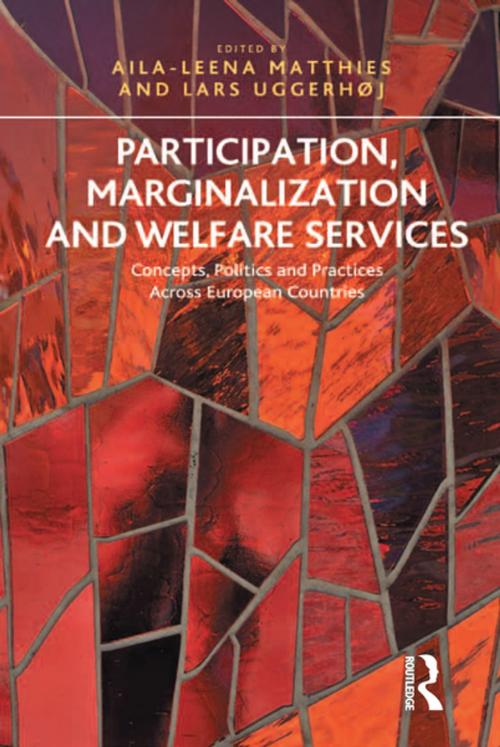Participation, Marginalization and Welfare Services
Concepts, Politics and Practices Across European Countries
Nonfiction, Social & Cultural Studies, Political Science, Politics, Social Services & Welfare| Author: | Aila-Leena Matthies, Lars Uggerhøj | ISBN: | 9781317083979 |
| Publisher: | Taylor and Francis | Publication: | May 13, 2016 |
| Imprint: | Routledge | Language: | English |
| Author: | Aila-Leena Matthies, Lars Uggerhøj |
| ISBN: | 9781317083979 |
| Publisher: | Taylor and Francis |
| Publication: | May 13, 2016 |
| Imprint: | Routledge |
| Language: | English |
Current debates around participation and marginalization dominate the agenda of many European political forums. There is an increasing concern about the stability of social cohesion and a growing number of particular groups of people who are regarded as being at risk of being socially excluded or marginalized. This volume goes beyond the surface of public discussions to look at the central role played by welfare services in European societies in either strengthening or hindering participatory citizenship and democracy. In current discussions welfare services - understood in a broad sense - are centrally positioned: there are high expectations that welfare services can hinder marginalization and enable participation. Yet marginalization is, in most cases, rooted in the deeper structures of society, with economy, participation and involvement dependent on political or highly personal factors, which are beyond the scope of welfare services. This groundbreaking volume posits that participation and marginalization are ’twin’ concepts, expressing opposing sides of one and the same processes faced by individuals and communities. It will be essential reading for social workers, sociologists and policy-makers throughout Europe.
Current debates around participation and marginalization dominate the agenda of many European political forums. There is an increasing concern about the stability of social cohesion and a growing number of particular groups of people who are regarded as being at risk of being socially excluded or marginalized. This volume goes beyond the surface of public discussions to look at the central role played by welfare services in European societies in either strengthening or hindering participatory citizenship and democracy. In current discussions welfare services - understood in a broad sense - are centrally positioned: there are high expectations that welfare services can hinder marginalization and enable participation. Yet marginalization is, in most cases, rooted in the deeper structures of society, with economy, participation and involvement dependent on political or highly personal factors, which are beyond the scope of welfare services. This groundbreaking volume posits that participation and marginalization are ’twin’ concepts, expressing opposing sides of one and the same processes faced by individuals and communities. It will be essential reading for social workers, sociologists and policy-makers throughout Europe.















